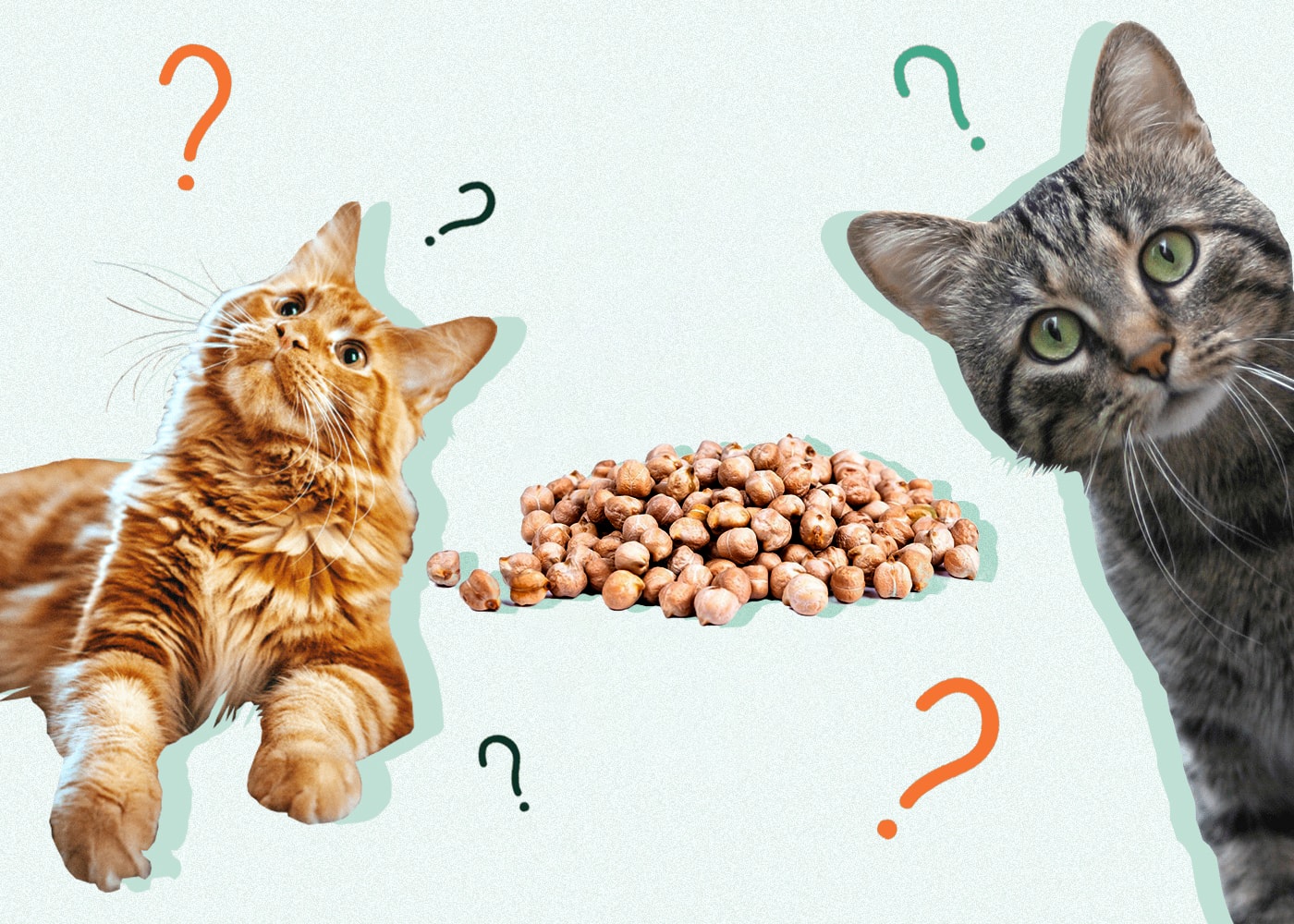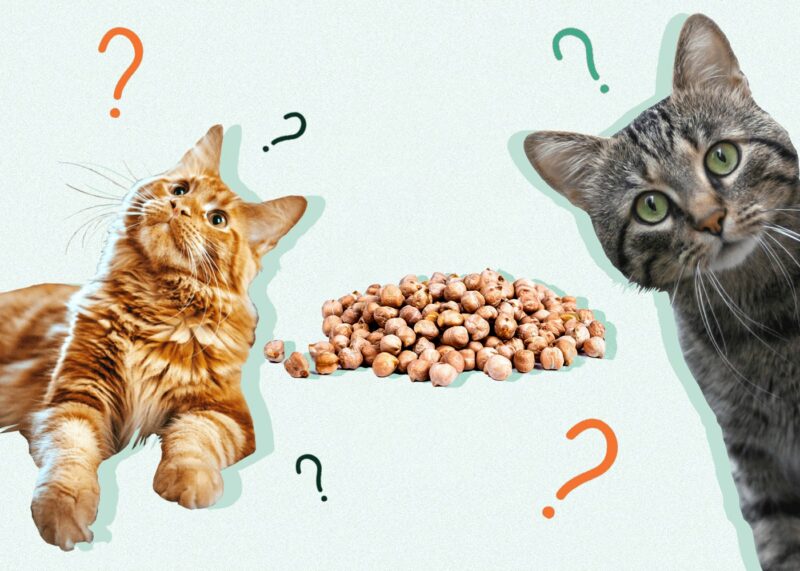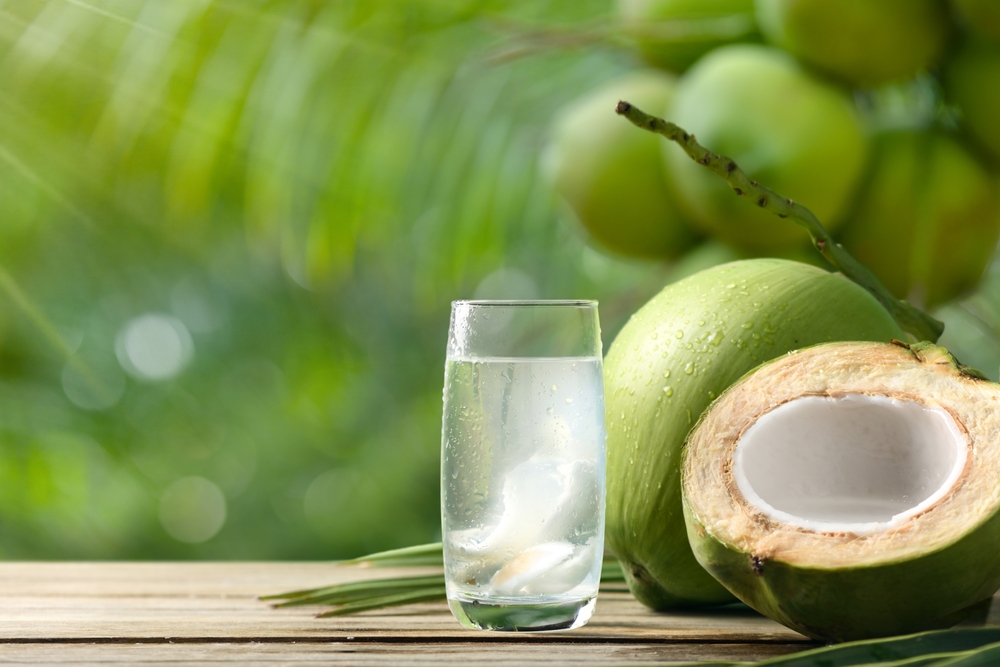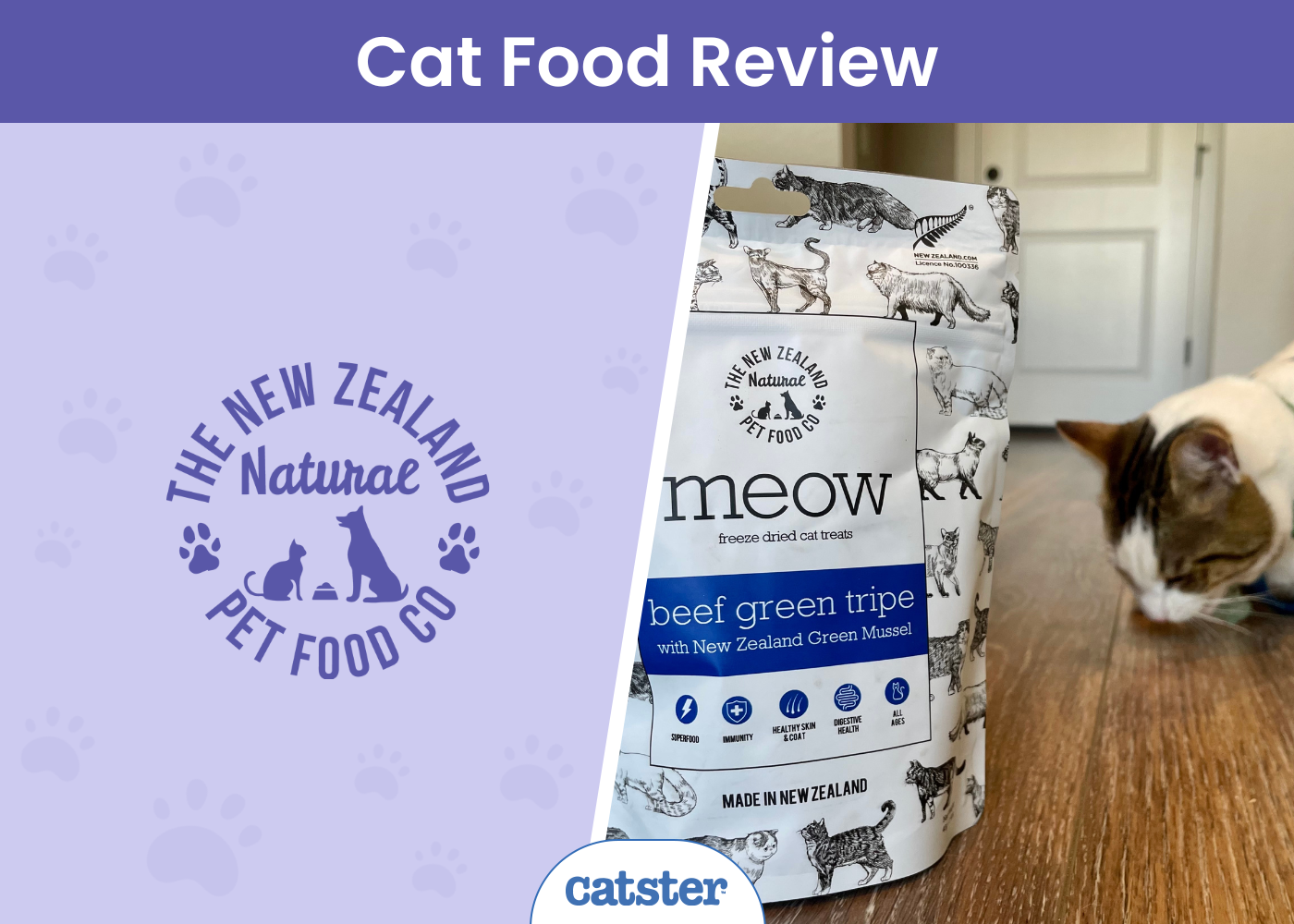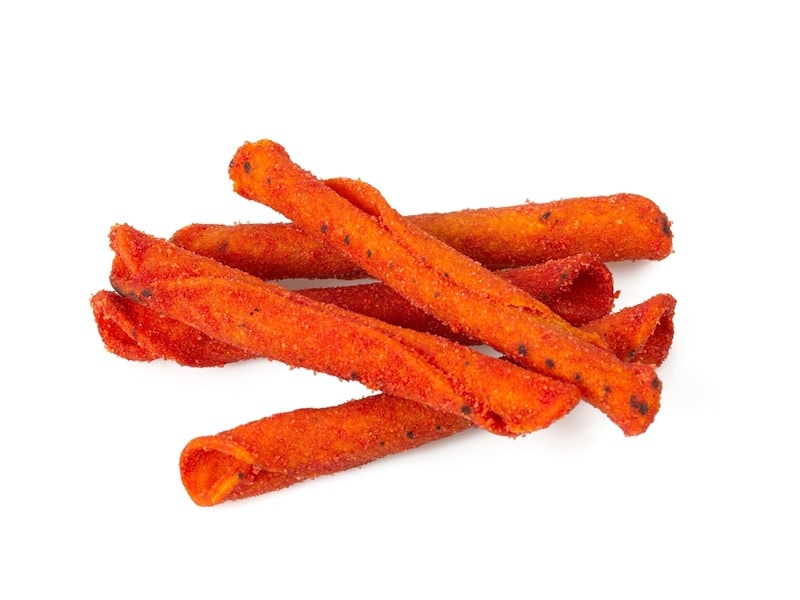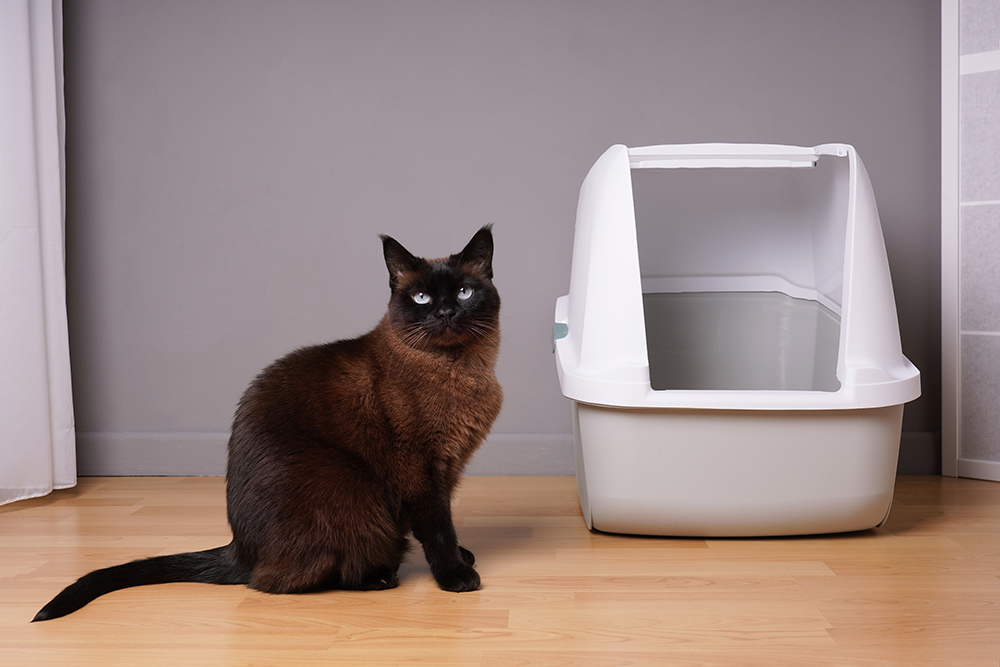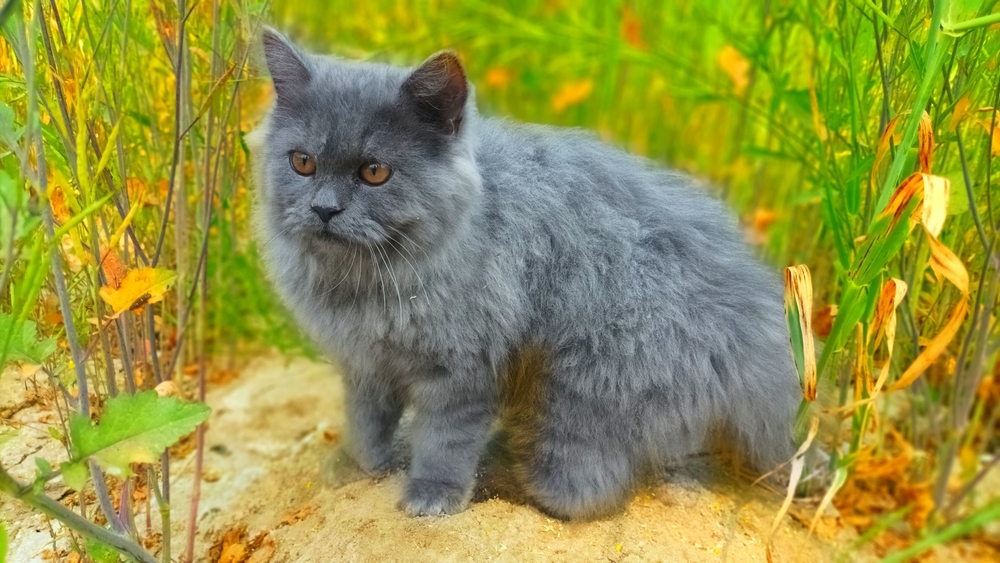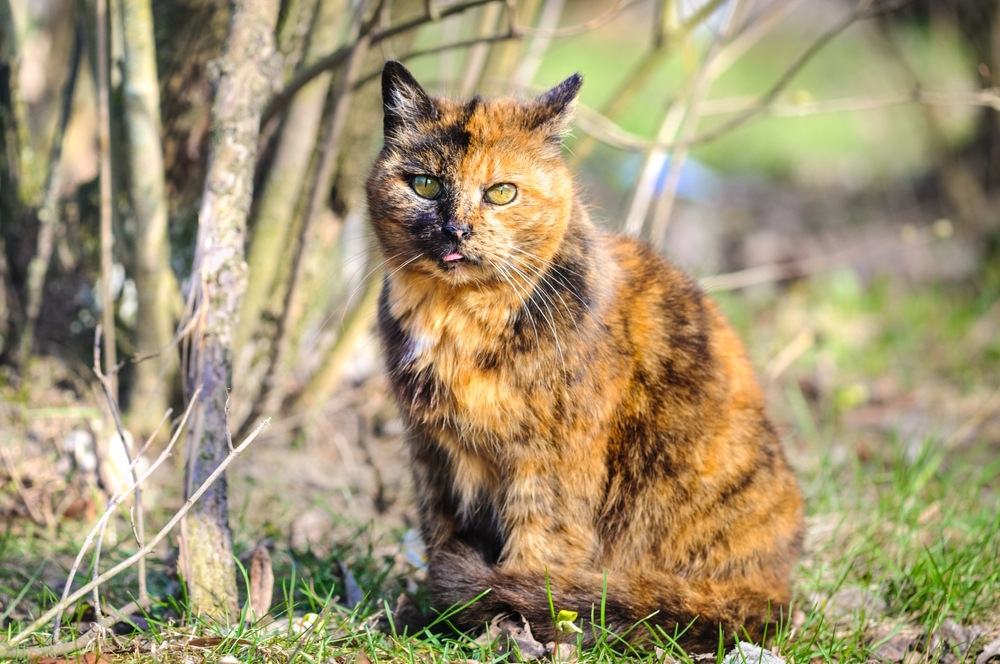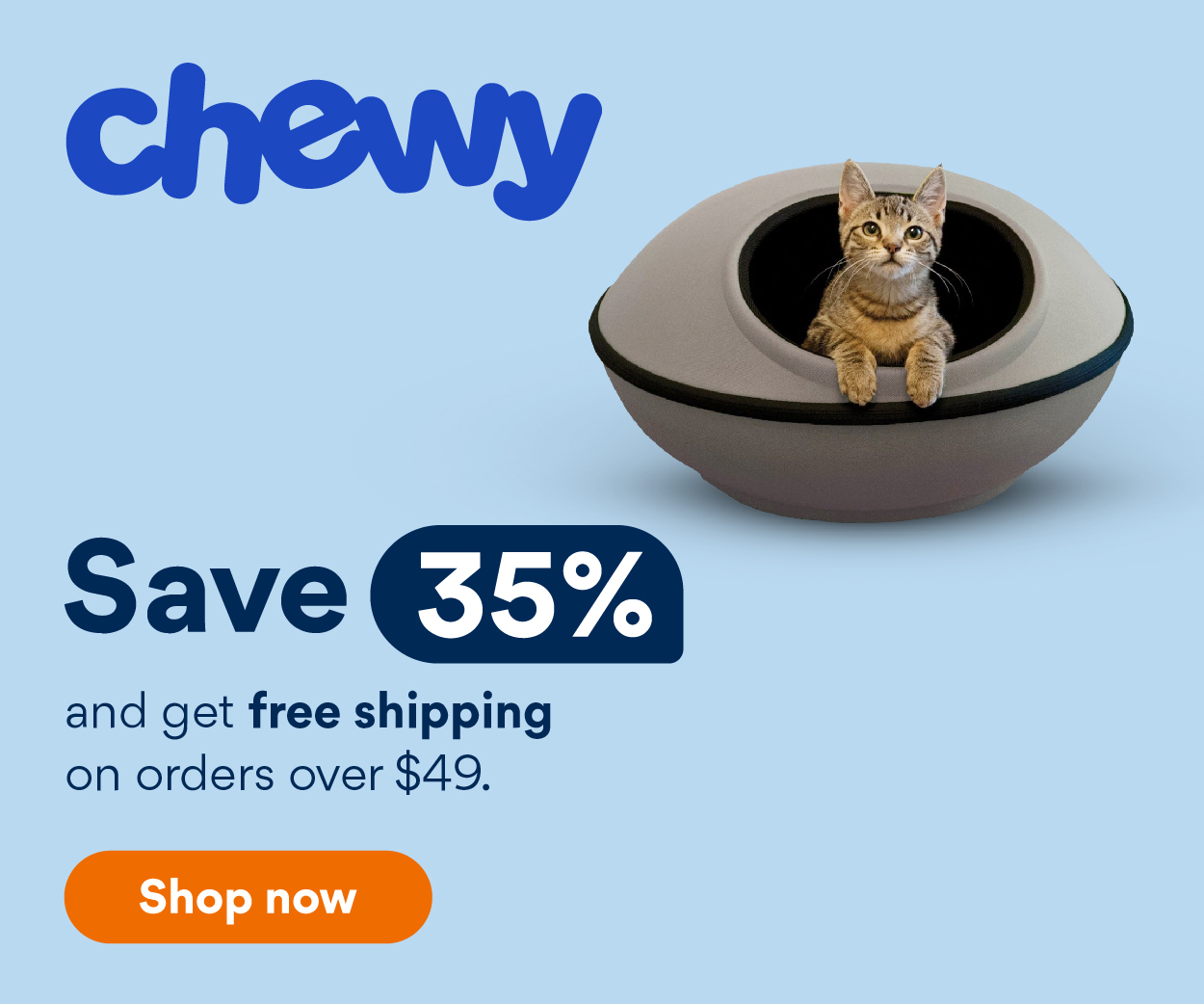Clic to skip ahead:
The chickpea, or garbanzo bean, is a legume that originates from the Middle East and has gained the nickname of the Egyptian pea. They are considered high in protein, and they are sometimes added to commercial cat foods to increase protein levels without having to include expensive ingredients like meat.
However, chickpeas are considered very difficult for cats to digest and should be avoided. If you feed garbanzo beans to your cat, ensure that they are properly prepared and soft. However, it’s better to find alternatives for chickpeas, especially since they don’t provide the same beneficial nutrients as commercial treats.

Cat Diet
Cats are obligate carnivores. They must get their nutritional and protein requirements from meat sources. For wild cats, this includes rodents and some small mammals like young rabbits in the wild. They chase and eat birds, and some, albeit very few, eat fish and water-based prey.
Although wild cats consume some grains, vegetables, and fruits from the gastrointestinal content of the prey they eat, they would not specifically search for them as food. Therefore, when giving your cat a species-appropriate diet, you should largely avoid feeding them vegetables, fruit, and grains frequently. However, we have suitable exceptions to this below.
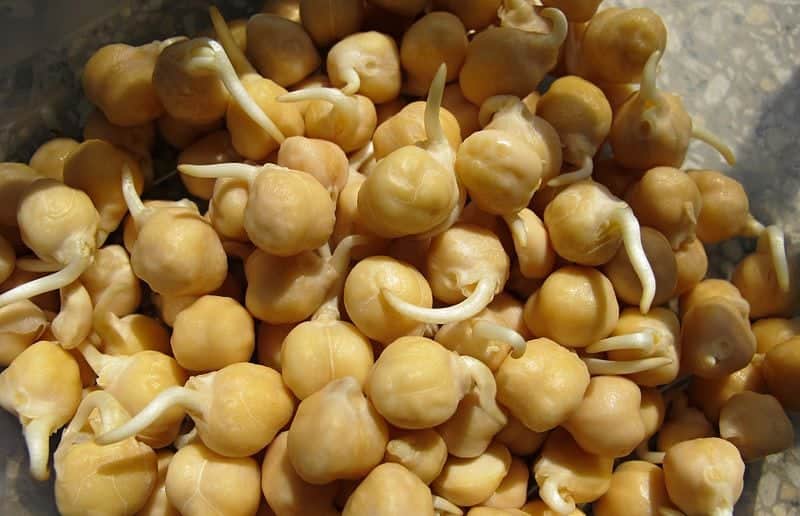
Are Chickpeas Good For Cats?
In particular, your cat’s protein intake, which should be high, will come from meat sources. Vegetable protein is considered incomplete and inadequate for cats. So, while chickpeas are high in protein, they do not contain all the amino acids a cat requires to survive.
Although chickpeas contain potassium, magnesium, and folate, the levels are not high enough to justify feeding chickpeas to your cat. Look for alternatives that are healthier. The big problem with the garbanzo bean is that it is very difficult to digest. Undigested food can cause gastrointestinal issues; your cat could suffer gut pain, excessive gas, constipation, diarrhea, or vomiting.

Alternatives To Chickpeas
There isn’t a reason to add chickpeas to a cat’s diet in the first place. They do not contain ingredients that cannot be gained from another, more digestible source.
- Carrots – Besides containing vitamin K, B6, potassium, and fiber, carrots are a great source of lutein and zeaxanthin. These antioxidants help maintain healthy eyes and vision.
- Blueberries – They’re safe for cats to eat, and blueberries contain decent levels of fiber and a lot of moisture. It can be difficult to get cats to drink water, but it is vital if you feed your cat dry food because they do not get much moisture from kibble. Blueberries are also an excellent source of natural antioxidants.
- Squash – In its various forms, squash is good for cats. It needs to be peeled and boiled, but perhaps the most significant benefit is that it contains a lot of dietary fiber. Dietary fiber can help reduce hairballs, prevent GI upset, and help your cat feel full.
- Peas – Peas are often found in dry cat food, where they are most often used as a grain replacement to help maintain the shape and structure of the kibble. They are also high in fiber and low in calories, and they contain a good range of vitamins and minerals that make them suitable ingredients for your home-prepared food as well as for commercial pet food. However, beware that peas can also be used to increase the total protein content in cat food without providing them with all the amino acids they need.
- Spinach – Spinach should not be given to cats with urinary or kidney complaints, but it is a good source of vitamins for other cats. In particular, it contains vitamins A, K, B6, B3, B2, and C. It also has minerals like potassium, calcium, and magnesium and has decent levels of fiber while being low in calories.
 Should You Feed Chickpeas To Your Cat?
Should You Feed Chickpeas To Your Cat?
Chickpeas or garbanzo beans are considered very good for humans. They are fibrous, low in calories, and contain minerals like potassium. However, they are tough for cats to digest and are not suitable for a feline diet.
Cats need to get most of their protein and nutrients from meat sources, but if you want to give your cat healthy treats occasionally, vegetables like carrots and fruits like blueberries offer some nutritional benefit, hence why they are sometimes found in dry kibble and other cat food recipes.
Featured Photo Credit: PDPics, Pixabay

